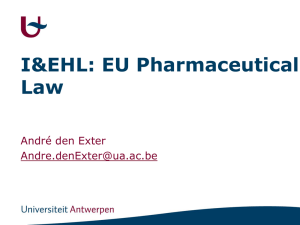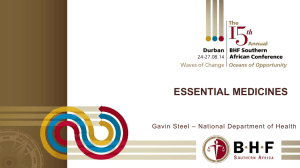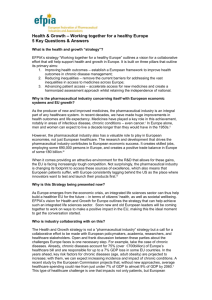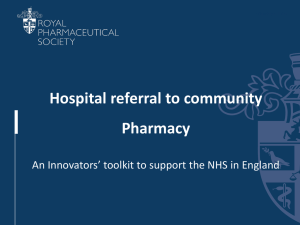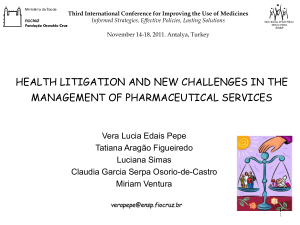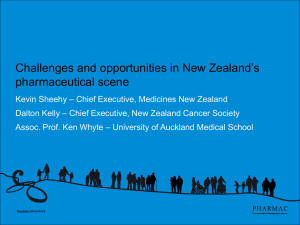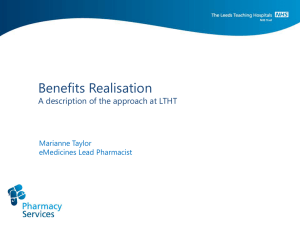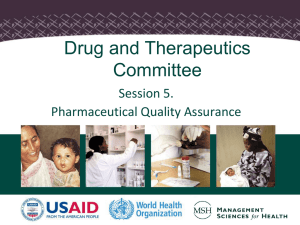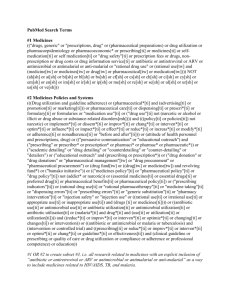Document
advertisement
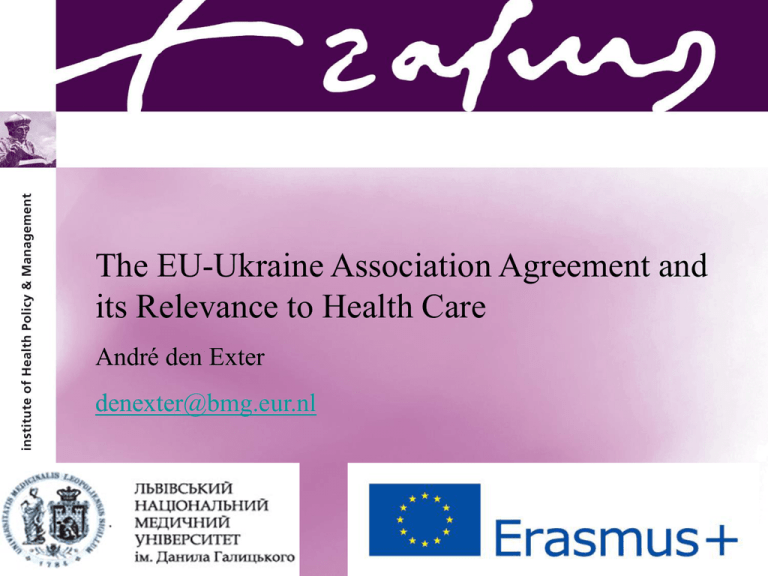
The EU-Ukraine Association Agreement and its Relevance to Health Care André den Exter denexter@bmg.eur.nl André den Exter Outline • Occasion • Content Agreement • Relevance to the Health Care Sector • Conclusions Occasion: EU-Ukraine Association Agreement • 16-9-2014 The European Parliament gave its consent to the EUUkraine Association agreement, which includes a Deep and Comprehensive Free Trade Agreement (DCFTA), on Tuesday in Strasbourg. At the same time, the Agreement was also ratified by the Ukrainian Parliament in Kiev. The deal will establish a deep political association and economic integration between the EU and Ukraine and provide for mutual free market access. Content AA: General • What is in the Association Agreement? – key parts focus on support to core reforms, economic recovery and sector cooperation, including social development and protection, equal rights, consumer protection, and public health – values and principles: democracy and the rule of law, respect for human rights, good governance, a market economy and sustainable development – Covers about 1200 pages, including Annexes and Protocols – Towards gradual EU integration – Timeline: 2-10 years EU-Ukraine AA & Health • Sector specific areas (public health, Art. 426 AA) • General trade issues: – Mobility patients & professionals, – Medicines, – Health & safety at work (Art. 419) – New: ICT and healthcare (eHealth) (Art. 391) • Data protection • Competition and State aid rules • Human rights (EU Charter HR) European Union Health Law • EU: no competence in health care • Focus on Public Health (Art. 168 TFEU): limited powers "towards improving public health and preventing diseases" • Complementary role • Legal competences: standards blood(products), organs, tissues and medicines • Encourage cooperation between MS and with third countries • Respecting the Member States’ responsibilities for the organisation, financing and delivery of medical care. Indirect effect: Internal Market and Competition law • Underlying notion: free movement principles • Free movement and Health care: – health professionals – patients – medicines • EU Competition law • Reservations! Mobility of Health Professionals • Mutual recognition of diplomas (Directive 2005/36/EC) • Mutual trust • Minimum standards of professional qualifications • Challenges: – Disciplinary misconduct and exchange of information – Introduction revalidation mechanisms – Third country diplomas • Right to Establish and Public policy/health restrictions: EU Court Justice case law Patient Mobility • Patient Mobility Directive (Directive 2012/24/EU) • Prior to Directive: reimbursement health care restricted to 'home Member State' • Cross-border health care: Prior authorization (PA) needed • EUCJ extended right to cross-border health care (outpatient care); PA: justified in case of in-patient care and highly expensive out-patient treatments Current and Future Challenges PM: • Demand for Clarity: – Differences in health care services covered social security – Differences in tariffs – Differences in quality – Differences in professional ethics • New issues: eHealth and HTA • Contractual arrangements planned care/Bilateral agreements in border regions Free movement of Medicines • Thalidomide drama • Pharmaceutical strategy: towards an internal pharmaceutical market • Scope: entire pharmaceutical chain (R&D, Clinical Trials, Patents, Registration, Production and Distribution, Packaging and Labelling, Advertising) • Excluded: Price-setting and reimbursement medicines Challenges • Outsourcing and offshoring clinical trials • No harmonized rules pharmacies (ownership) • Internet sale • Counterfeit medicines • Direct to consumer advertising • Rare diseases and Orphan medicines • Classification Medical Devices and Safety rules(PIP crisis) European Competition Law and Health Care • Aim: restore free competition (cartel, abuse dominant position) • Applicable to health care? • Examples: Pharmaceutical companies - dual pricing system (GSK) - supply quota • Challenges: – Pharmaceutical sector inquiry (blocking genetics market entree) – Parallel trade of medicines Conclusions • EU-Ukraine AA: Towards gradual integration • Health Impact and concerns: – Collaboration border crossing health threats (e.g., counterfeits, pandemic diseases) – Cross-border health care – (Inter)national 'brain drain' health professionals – Future medicines (pharmacogenetics, nanomedicines) – Equal access to health care & market competition • Health lawyers: new focus Contact Details André den Exter, Jean Monnet Chair EU Health Law Erasmus University Rotterdam Room J8-27 E-mail: denexter@bmg.eur.nl Phone: + 31 10 4081867 www: http://www.bmg.eur.nl/onderzoek/eu_projecten/jean_monnet _programme/teaching/

